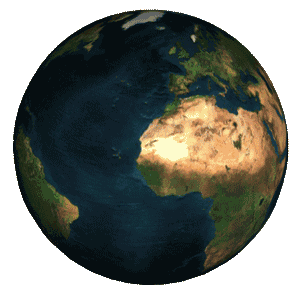The Order of Time
- isabossav

- Jun 5, 2021
- 5 min read
What is time? Our lives are dictated by and immersed in it yet we don't really understand it. We do know a few things about it that seem fairly obvious: it flows uniformly, independently from everything else, and from the past to the future.
Reality, however, is often very different from what it seems. I sometimes have to remind myself that even while lying still I am actually moving at more than 480,000 mph (the speed at which we are traveling around the center of the galaxy). The first time I heard about this, I was dumbfounded. The room around me and the ground beneath my feet seemed so stable, so in place. Rationally, I can understand that the solar system, with me in it, is continuously moving at a very fast speed, but it just doesn't feel like it. Nor does it feel like the Earth, also with me on it, is rotating around its axis at more than 700 mph (the speed actually depends on the specific location: New York and areas of similar latitude move at about 760 mph while locations closer to the equator move at more than 1,000 mph) and spinning around the sun at about 66,000 miles every hour.
Sitting "still" writing this post while moving at 483,000 mph
Most of our ideas about time have similarly turned out to be false. Time is not uniform or universal as it appears to us, and it is sometimes counterintuitive to how we perceive and experience it.
"One after another, the characteristic features of time have proved to be approximations, mistakes determined by our perspective, just like the flatness of Earth or the revolving of the sun."
In this post, inspired by The Order of Time by Italian physicist and writer Carlo Rovelli, I will go through a few of these characteristic features of time that have turned out to be not at all what we expected.
Time is Uniform
Although time does seem to move faster when we are having fun, we think of it as passing uniformly everywhere and at all times but this is not how it really works.
To begin with, time passes faster in the mountains than it does at sea level. The difference can actually be measured with precision timepieces. And it isn't just the clocks that slow down at sea level: if you go to a mountain while I go to the seaside, and we then meet up later, I will have lived less, thought less, aged less, had less time do things. Amazingly, this was predicted by Einstein before it could be proved (many other game changing discoveries were also predicted by him before they could even be proved and every time I find out about a new one I just can't believe someone so smart ever existed).
The reason for this phenomenon is that masses modify the space and time surrounding them, slowing down time around themselves. Technically, we slow down time around ourselves too, only we are so small the effects become insignificant. The Earth, being a larger mass, slows down time a bit more significantly. Therefore, time passes slower in the seaside than in the mountains because the former is "closer" to Earth.
Furthermore, masses are not the only ones slowing down time. Speed does so as well. If you and I get separated, and you stay still while I walk around, time will pass more slowly for me. However, this only becomes perceptible at very high speeds.
"A moving object experiences a shorter duration than a stationary one: a watch marks fewer seconds, a plant grows more slowly, a young man dreams less."
Time is Absolute
Let's go back to the precision timepieces I mentioned earlier. Imagine before you go to the mountain and I go to the seaside, we both take precision timepieces with us. When we meet again, our two clocks will mark different times. Which of the two shows the "real" time?
The reality is that there is no "true" value because time is not absolute. It is relative, and two times can change relative to each other but neither is "truer" than the other. Using physics equations, we can describe how things evolve in their own times and how "times" evolve relative to each other but the "absolute" time that many of us grow up believing in doesn't really exist.
"Time has a different rhythm in every place."
Time Flows From Past to Future
We always think of time as flowing in one direction. The difference between past and future feels like a universal truth. However, in the elementary laws that describe the mechanisms of the world, there is no such difference: none of the fundamental equations by Newton, Maxwell, Einstein, Heisenberg, Schrodinger or any of the great scientists distinguishes the past from the future. There is only one exception: the Second Law of Thermodynamics.
The Second Law of Thermodynamics states that if nothing else changes around it, heat cannot pass from a cold body to a hot one. Heat transfer processes are therefore one-directional and irreversible. This establishes a distinction between past and future.
"If I watch a film that shows a ball rolling, I cannot tell if the film is being projected correctly or in reverse. But if the ball stops, I know that it is being run properly; run backward, it would show an implausible event: a ball starting to move by itself. The ball’s slowing down and coming to rest are due to friction, and friction produces heat."
The link between time and heat is fundamental: every time a difference is manifested between the past and the future, heat is involved, and in every sequence of events that becomes absurd if projected backward, there is something that is heating up.
Conclusion
Our entire lives revolve around time: our birth, our aging, our daily routines and activities, our death, yet we understand it so little. And this is only just the beginning. Rovelli goes on to show how utterly wrong we are about time in more ways than I could have possibly imagined. But the implications of even just these three "revelations" are huge: time is not at all what we believed. It is neither uniform nor absolute nor does it flow from past to future: it depends on where you are, your degree of proximity to masses, and the speed at which you move.
Time remains one of the greatest mysteries of the universe and one that I find fascinating. Einstein once said that the separation between past, present and future is only a stubbornly persistent illusion. Could this be another one of his great insights? How does something that feels so real can be just an illusion? On the other hand, many other things feel very real and I know for a fact they're mere illusions. So what really is time? I really hope one day we can find an answer.











Comments